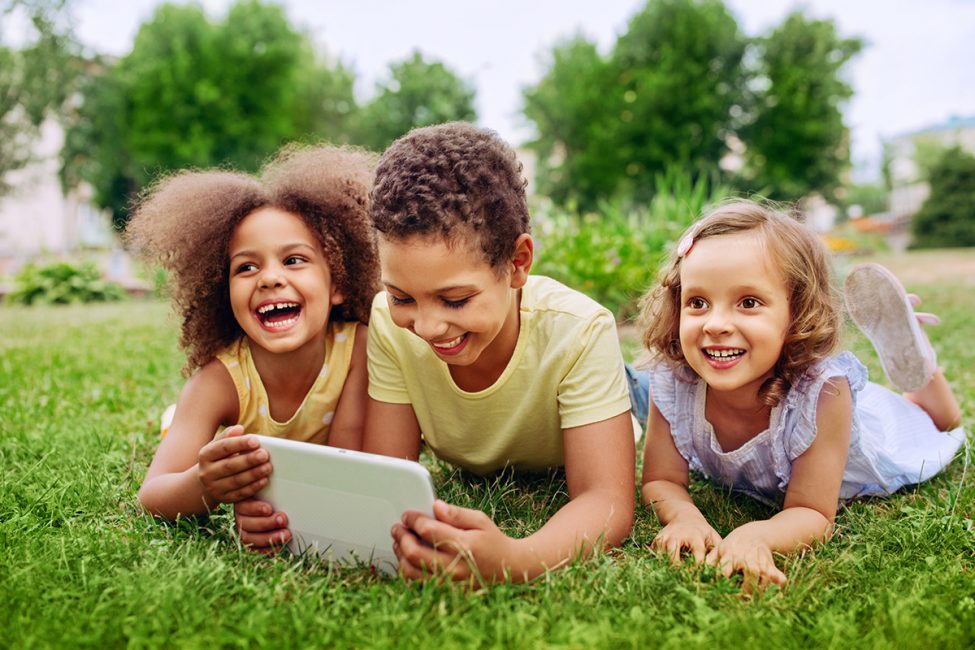Throughout the pandemic, public media stations in all 50 states and U.S. territories have stepped up to provide at-home learning services for pre-K through 12th grade students and robust educational resources for educators, parents and caregivers. According to a recent report, more than half of public school K-12 teachers said the pandemic resulted in a “significant” learning loss for students.
To ensure every student had access to effective, free educational resources over the summer, public media stations provided both national and locally driven tools to boost learning before students return to school.
PBS KIDS is offering students of all ages and their families educational media and activity resources to fill their summer days with creativity, exploration and fun.
Camp PBS KIDS, targeted for pre-k through 2nd grade students and their families, is a collection of hands-on activities, games and book lists.
Parents can subscribe to the weekly PBS KIDS Newsletter, which shares family-friendly activities, including crafts, recipes and hands-on experiments.
PBS LearningMedia’s Summer Learning collection, offered students in grades 6-12 a way to explore a wide variety of topics and take a virtual road trip around the country to historic and natural places, like the Rosa Parks Museum in Montgomery, AL and the Hoh Rainforest in Washington with interactive lessons and videos.
South Florida PBS (Miami and West Palm Beach, FL), in partnership with the Museum of Discovery and Science, hosted KidVision: Full STEAM Ahead, a free pre-K virtual early learning series. The seven-week Science, Technology, Engineering, Arts and Math (STEM) educational program included seven different virtual events with hands-on activities.
PBS Reno’s (Reno, NV) Camp Curiosity, a collection of free lessons, videos and activities curated by PBS Teachers around weekly learning themes, allows students and families to delve into activities that correlate with Washoe County School District’s virtual summer camps. Educational topics and activities include the culinary arts, sports, STEM and cultures and languages.
WPSU’s (State College, PA) Virtual Summer Camp 2021 enabled families to travel the world from home. Each weekday a new video was posted to help students explore music, cooking, nature, STEM and global arts from each continent through family-friendly videos and activities created by local experts.
The Michigan Learning Channel, a public media partnership between Michigan’s public media stations, had an eight-week virtual program to support summer learning for pre-K to 6th grade students. Each grade has 2-3 hours of video lessons per week, plus a fun and interactive activity book. Families also attended interactive virtual events, like Exploring Space with the Michigan Science Center and Making Crayon Candles with Curious Crew.
KMOS (Sedalia, MO) and the UCM College of Education presented KMOS Classroom, a virtual program designed to engage K-5 students in summer learning with lessons developed and presented by university professionals.
West Virginia Public Broadcasting (Charleston, WV) and the WVU Extension Service brought families Energy Express, an educational series that keeps 1st-6th graders grade engaged with fun activities in literacy, STEM, art, cooking and nature.
Georgia Public Broadcasting’s (Atlanta, GA) CAMP GPB, in partnership with local education partners, included a series of hands-on activities that promote learning, creativity, and playfulness all at once. Families can also check out GPB’s “Getting Ready” resources, which are designed to assist parents with out-of-school learning and ensure that students are prepared to return to the classroom.
WHYY (Philadelphia, PA) helped teens and tweens gain valuable media-production experience by creating original news and film productions through its WHYY Summer program. Students finishing grades 6-12 could participate in virtual photography and photojournalism, podcasting and stop-motion animation camps.
KLRN’s (San Antonio, TX) created and aired Season 2 of Camp TV, a virtual day camp experience including field trips, activities and entertainment that helped children continuing learning.
Valley PBS (Fresno, CA), in partnership with the Fresno Unified School District, developed a summer edition of its Reading Explorers program to build pre-k through 2nd graders’ literacy skills over the summer. Each weekday, students could watch Camp Read-A-Lot lessons taught by local educators, with previous episodes archived online.
PBS Fort Wayne (Fort Wayne, IN), PNC Grow Up Great and Fred Rogers Productions offered the Be My Neighbor Summer Camp, a week of crafts, recipes and games for families to complete together. Campers learned about topics like bugs, shapes, and flowers with virtual lessons taught by Daniel Tiger and his friends at PBS Fort Wayne.
Twin Cities PBS (Saint Paul, MN) released summer learning play lists each week in collaboration with the Science Museum of Minnesota. Pre-k to 2nd grade students could watch videos, make crafts and play games as they discover fascinating topics, including magic and potions, dance and music, and paleontology.
ThinkTV (Dayton, Ohio), PBS Kids and the Dayton Metro Library hosted the Imagine Your Story Reading and Adventure Camp, a virtual summer camp experience designed for grades K-3 packed with read-alouds, sing-a-longs, crafts and dance parties. Participants got to virtually fly over Dayton with SkyDrone and visit local spots like the Boonshoft Museum and Dayton Institute of Art.
These are just a small sample of the learning resources that stations around the country offered to support summer learning. These educational services would not be possible without federal funding for public media, which amounts to about $1.40 per American annually. Check out your local public media station’s website to find pre-K through 12th grade educational events and resources throughout the year.

Follow Us